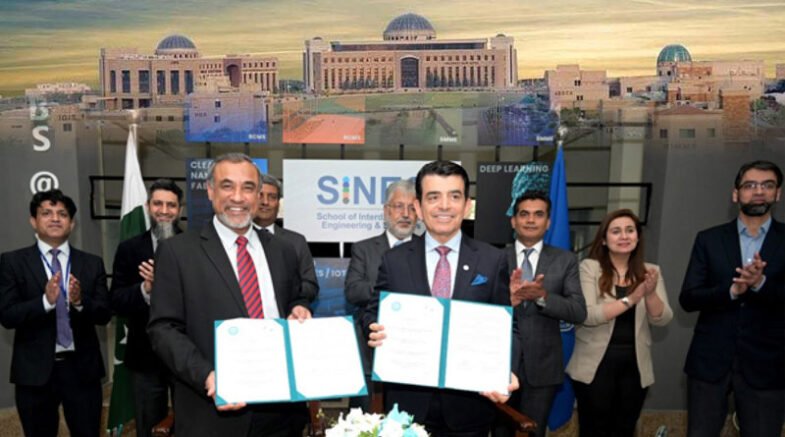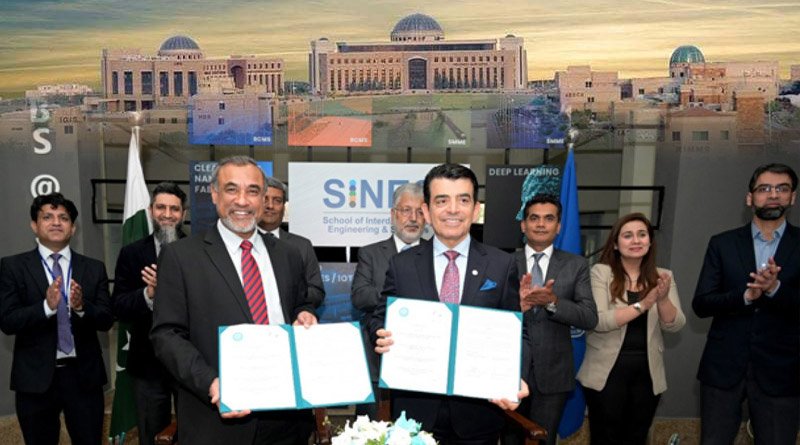The agreement will promote collaborative research, expertise exchange, faculty and student exchange programmes, and collaborative academic and scientific activities.

The Islamic World Educational, Scientific, and Cultural Organization (ICESCO) has formed a collaboration with Islamabad’s National University of Sciences and Technology (NUST). The goal is to work together to advance higher education and research, especially in Islamic countries.
Lt Gen (Retd) Engr Javed Mahmood Bukhari, Rector NUST, and Dr. Salim M. Al Malik, Director General ICESCO, signed the partnership agreement at the NUST School of Interdisciplinary Engineering and Science (SINES).
The event was also attended by Dr. Mukhtar Ahmed, Chairman of the Higher Education Commission. ICESCO, headquartered in Rabat, Morocco, is a leading Islamic world organisation that promotes educational, scientific, and cultural cooperation.
As part of the agreement, an ICESCO Chair will be established at NUST to strengthen ties between the two institutions and promote academic and scientific cooperation, particularly in the field of data analytics.
The agreement will promote collaborative research, expertise exchange, faculty and student exchange programmes, and collaborative academic and scientific activities. In addition, the Chair will promote educational and scientific cooperation among Islamic countries in order to strengthen the global knowledge economy.
The two organisations hope to collaborate to advance higher education and to achieve sustainable development, promote social harmony, and advance people’s well-being in the Islamic world and beyond. The distinguished guests also visited the National Science and Technology Park (NUST) and various high-tech labs at SINES prior to the signing ceremony.
NUST established the School of Interdisciplinary Engineering & Sciences (SINES) in 2007 with the goal of developing modelling and simulation facilities for design and development in various disciplines through education, training, and research.
The centre was established to serve as a platform for integrating government, academic, and industry design and development efforts.
Only through collaborative cross-disciplinary research and educational programmes with industry and government could progress in this direction be made. There was a specific requirement for integrating analytical and computational techniques with advances in computer hardware and software.
